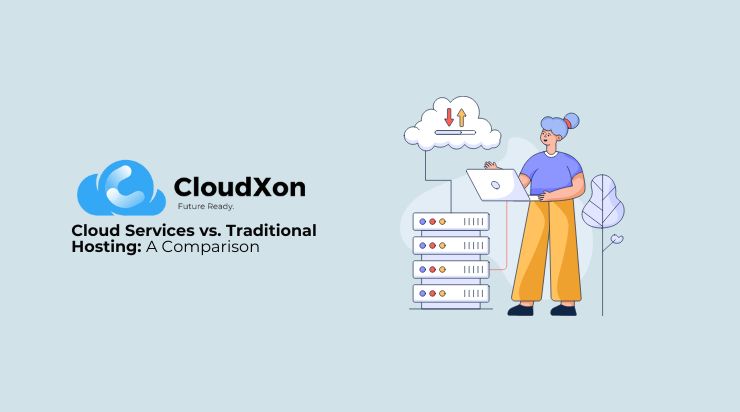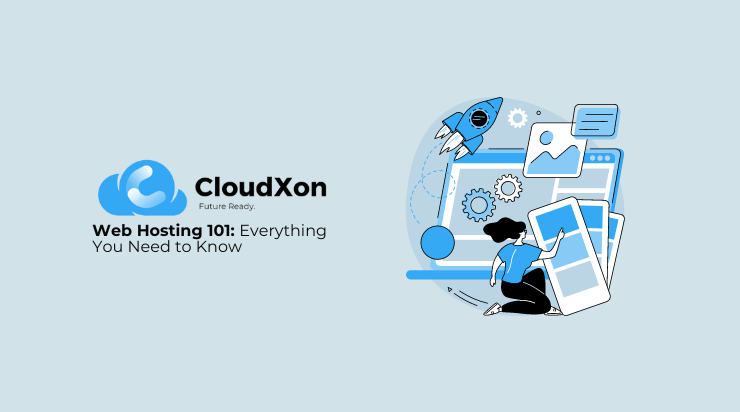In today’s digital era, businesses have various options for hosting their applications and data, with cloud services and traditional hosting being two prominent choices. This blog aims to provide an in-depth comparison between cloud services and traditional hosting, covering key aspects like performance, scalability, cost, security, and more.
Feature | Cloud Services | Traditional Hosting |
|---|---|---|
Deployment Model | On-demand, scalable resources | Fixed infrastructure |
Performance | High performance, scalable | Limited scalability, fixed resources |
Cost | Pay-as-you-go, cost-effective | Upfront investment, ongoing costs |
Scalability | Highly scalable, dynamic resources | Limited scalability, fixed capacity |
Security | Advanced security features | Traditional security measures |
Reliability | High reliability, uptime guarantee | Reliability depends on infrastructure |
Flexibility | Flexible resource allocation | Limited flexibility |
Data Backup | Automatic backups, disaster recovery | Manual backups, limited recovery |
Accessibility | Anytime, anywhere access | Limited accessibility |
Deployment Model:
Cloud services follow an on-demand deployment model where resources such as computing power, storage, and applications are provisioned and scaled based on real-time requirements. This means businesses can quickly deploy new resources and scale up or down as needed, ensuring optimal resource utilization. On the other hand, traditional hosting relies on fixed infrastructure where resources are allocated based on predefined capacities, leading to potential underutilization or overprovisioning.
Performance:
Cloud services offer superior performance and scalability due to their ability to distribute workloads across multiple servers and data centers. This distributed architecture ensures efficient resource allocation, reduced latency, and improved response times, even during peak demand periods. Traditional hosting, with its fixed infrastructure, may struggle to handle sudden spikes in traffic or workload fluctuations, resulting in performance issues.
Cost:
Cloud services are known for their cost-effectiveness, primarily due to the pay-as-you-go pricing model. Businesses only pay for the resources they use, eliminating the need for large upfront investments in hardware and infrastructure. In contrast, traditional hosting requires upfront capital expenditure for purchasing and maintaining hardware, along with ongoing operational costs for maintenance, upgrades, and support.
Scalability:
One of the key advantages of cloud services is dynamic scalability, allowing businesses to scale resources up or down based on demand. This agility enables organizations to handle varying workloads efficiently, ensuring optimal performance and cost-effectiveness. Traditional hosting, with its fixed infrastructure, may struggle to scale seamlessly, leading to resource constraints during peak periods or excess capacity during low-demand times.
Security:
Cloud services offer advanced security features such as encryption, firewalls, intrusion detection systems, and identity/access management. These measures ensure data protection, compliance with regulatory requirements, and mitigation of cybersecurity threats. In contrast, traditional hosting relies on conventional security measures, which may not provide the same level of protection against evolving cyber threats.
Reliability:
Cloud services provide high reliability and uptime guarantees through redundant infrastructure, failover mechanisms, and disaster recovery solutions. This ensures business continuity and minimizes downtime, even in the event of hardware failures or network disruptions. Traditional hosting, while reliable, may not offer the same level of redundancy and uptime guarantees.
Maintenance:
Cloud services typically involve managed maintenance, where the service provider handles hardware maintenance, software updates, security patches, and performance monitoring. This relieves businesses of the burden of managing and maintaining their infrastructure, allowing them to focus on core operations. In contrast, traditional hosting may require businesses to manage their infrastructure, leading to additional time, effort, and resources spent on maintenance tasks.
Flexibility:
Cloud services offer flexibility in resource allocation, allowing businesses to allocate and reallocate resources dynamically based on changing needs. This flexibility enables efficient resource utilization, cost optimization, and the ability to adapt quickly to market demands. Traditional hosting, with its fixed resource allocation, may lack the same level of flexibility, leading to potential inefficiencies and constraints.
Data Backup:
Cloud services provide automatic backups and disaster recovery options, ensuring data protection and business continuity in case of data loss or disasters. These backups are typically automated, scheduled, and stored in multiple locations for redundancy. In contrast, traditional hosting may rely on manual backup processes, which can be time-consuming, prone to errors, and may not offer the same level of data redundancy and recovery options.
Accessibility:
Cloud services offer anytime, anywhere access to applications and data, allowing users to work remotely, collaborate seamlessly, and access resources from various devices. This accessibility enhances productivity, flexibility, and business continuity, especially in today’s distributed work environments. Traditional hosting may have limitations in remote access and mobility, potentially hindering productivity and collaboration.
Discover Your Ideal Hosting Solution with CloudXon
Explore CloudXon's comprehensive hosting solutions tailored to your business needs. Contact us today to optimize your hosting environment for success.




